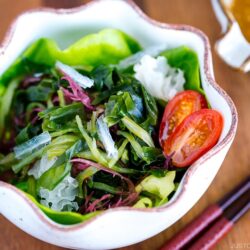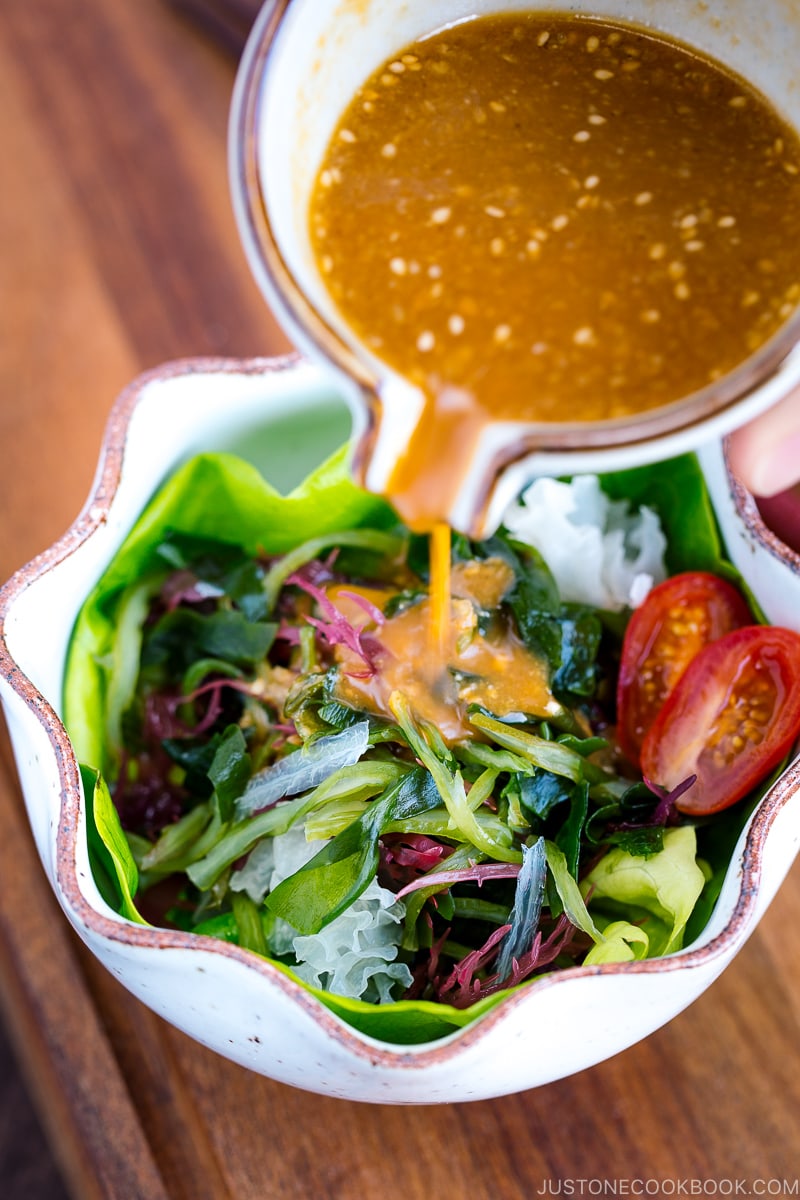
Surrounded by the ocean, we eat all kinds of seaweeds in Japan. Japanese cuisine uses sea vegetables extensively for their health properties and unique flavors. The diversity of seaweed is just as vast as the ocean. Some of the more familiar varieties include nori, which is used for sushi and onigiri rice balls, kombu for dashi broth, and wakame for miso soup and salad.
Little did I know seaweed is considered a “strange food” until I came to the U.S. So I was surprised to receive many requests for a Seaweed Salad recipe from readers around the globe (read this post about the health benefits of seaweed).
It was wonderful to know that more people enjoy eating seaweed than I had thought. When you asked me for “Seaweed Salad,” perhaps you were looking for the seaweed salad below, commonly served at Japanese sushi restaurants in the U.S.
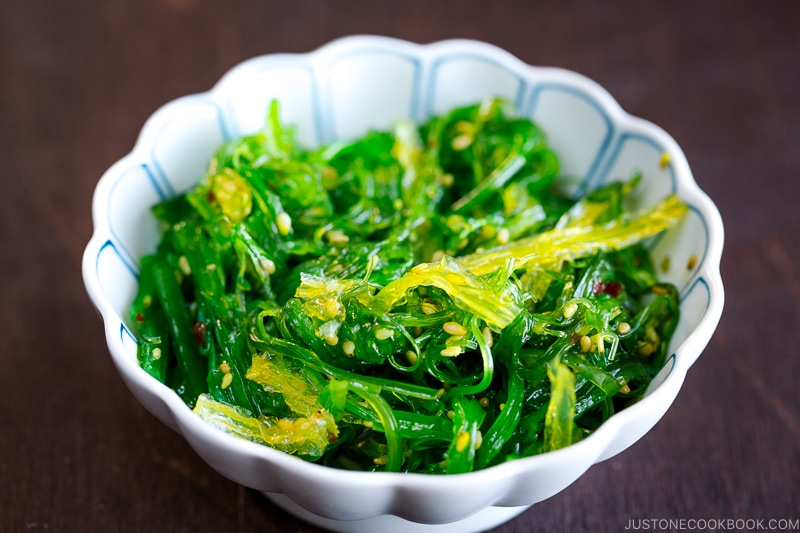
The salad is a little bit spicy but overall quite sweet and crunchy. However, this particular seaweed salad does NOT exist in Japan. Since it’s been a while since I lived in the U.S., I asked my friends in Japan to confirm.
Out of curiosity, I looked up what the salad was made of. Besides a mixture of seaweed, seaweed stem (Kuki wakame), and seaweed sprout (Mekabu), there were some ingredients that I had not expected. They include artificially dyed agar (seaweed-based gelatin), MSG, and high fructose corn syrup. I asked the workers at sushi restaurants how they make the salad from scratch, and to my surprise, they all said they actually purchase the seaweed salad pre-made.
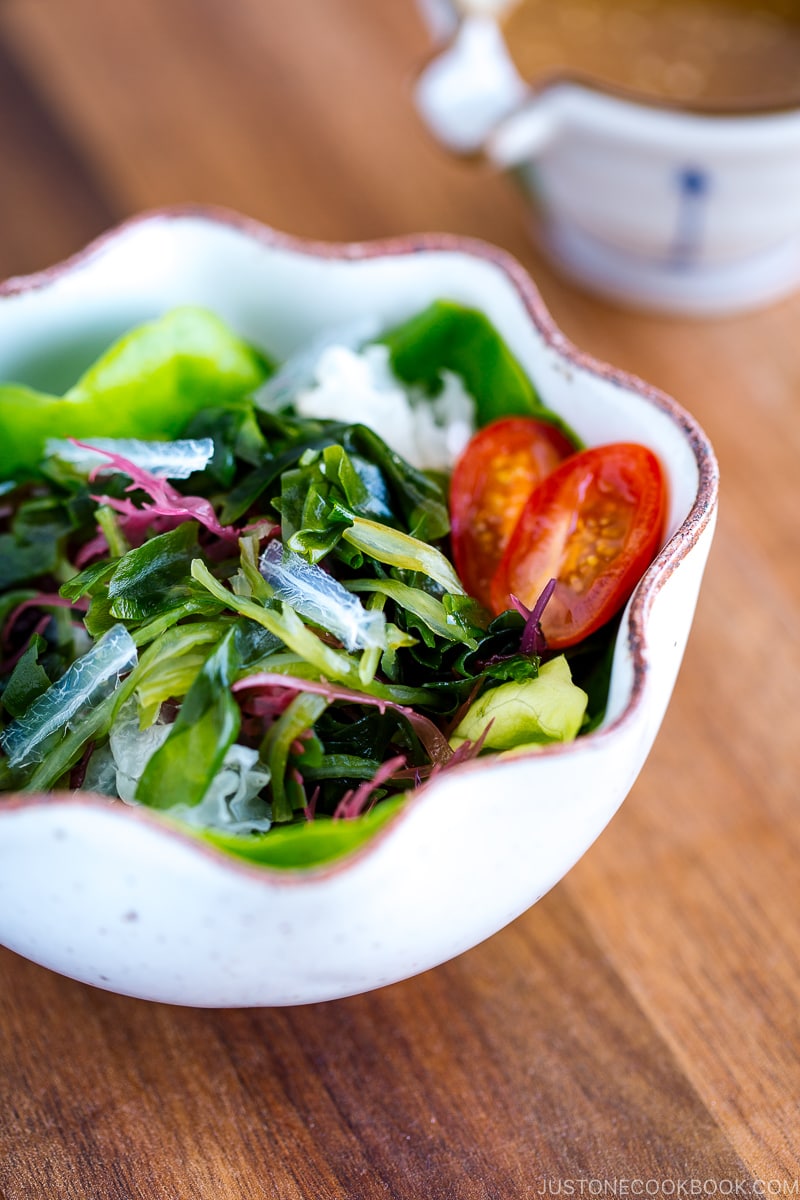
Needless to say, I didn’t make the copycat version. But instead, I wanted to share the traditional style of seaweed salad that we eat in Japan. It’s healthier and even more delicious than the restaurant’s seaweed salad.
I used dried seaweed salad mix purchased at my local Japanese grocery store. A well-stocked Asian grocery store should carry them as well. The seaweed mixture is straightforward to use. Soak them in cold water for a few minutes to soften and drain well before tossing them with dressing. Many kinds of dressing would go well with the salad, such as this homemade Sesame Dressing. I made our favorite Miso Dressing, which is packed with umami!
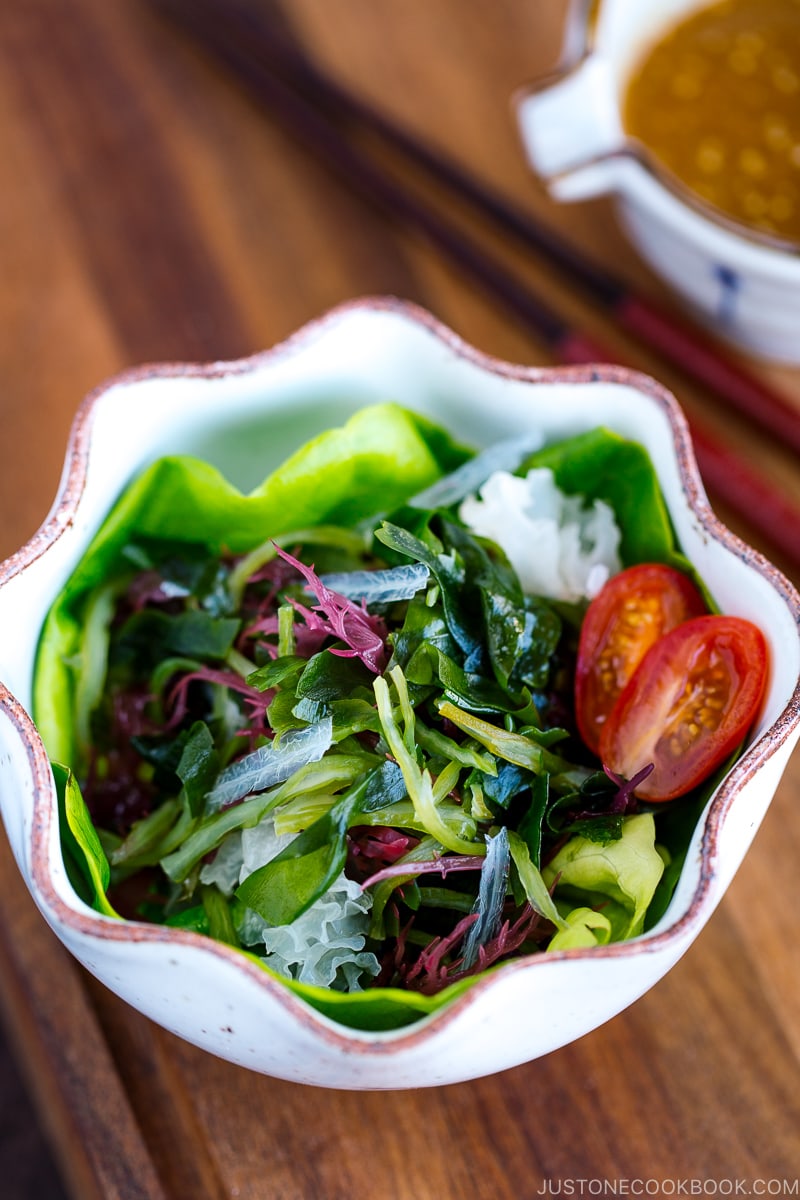
If you can’t find the mix, substitute it with wakame seaweed (the kind you see in miso soup). Soak wakame until tender, drain thoroughly, toss it with thinly shredded cucumber and cherry tomatoes.
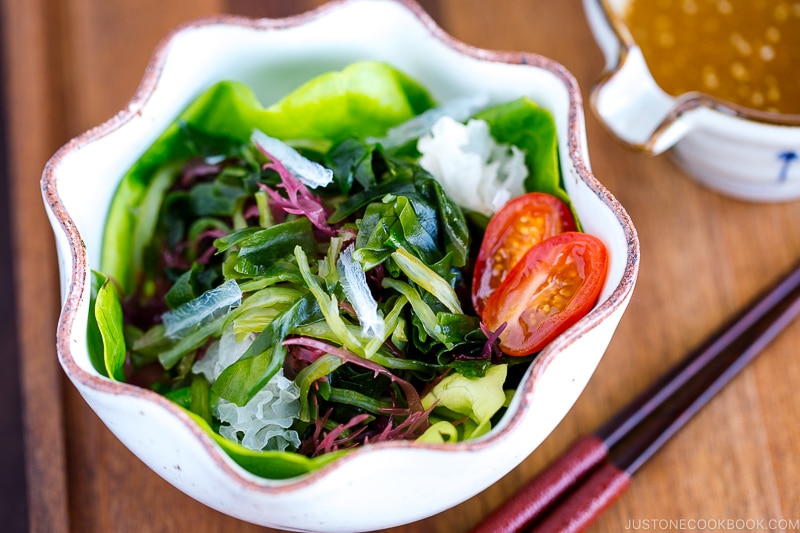
Wish to learn more about Japanese cooking? Sign up for our free newsletter to receive cooking tips & recipe updates! And stay in touch with me on Facebook, Pinterest, YouTube, and Instagram.
Seaweed Salad
Ingredients
- ½ oz dried seaweed salad mix (about 1 handful)
For the Miso Dressing
- 1 Tbsp miso (I use koji miso or awase miso; you can use your favorite type)
- 1 Tbsp soy sauce
- 1 Tbsp rice vinegar (unseasoned)
- 1 tsp toasted sesame oil
- 1 tsp mirin
- 1 tsp toasted white sesame seeds (plus more for garnish)
Instructions
- Gather all the ingredients.
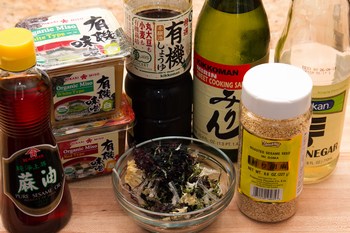
- Soak ½ oz dried seaweed salad mix in cold water for 5–8 minutes. Drain the seaweed and squeeze out the excess water. Serve the seaweed in individual bowls or large serving bowl. Chill the salad before serving.

- For the dressing, use a mortar and pestle (Japanese suribachi and surikogi) to grind 1 tsp toasted white sesame seeds. This will add a nice aroma and texture to the dressing.
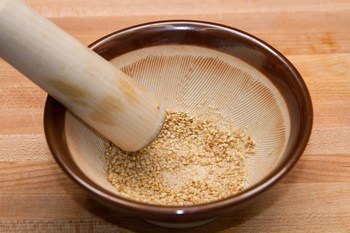
- In a small bowl, combine the Miso Dressing ingredients: 1 Tbsp miso, 1 Tbsp soy sauce, 1 Tbsp rice vinegar (unseasoned), 1 tsp toasted sesame oil, 1 tsp mirin, and the ground sesame seeds. Whisk together.
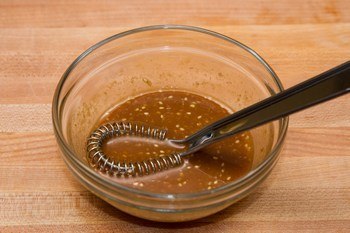
- Put the dressing in a small bowl or dressing bottle. Mix or shake the dressing before pouring to the salad. Sprinkle additional sesame seeds for garnish, if you‘d like.

Nutrition
Did you make this recipe?
Tag @justonecookbook on Instagram so we can see your delicious creation!


